MURFREESBORO, Tenn. — In early 2017 when the Women’s March was happening in locations across the country, disability advocate Rebekah Taussig said she still felt out of place in a sea of rally-goers who gathered in protest of the expected challenges to gender equality and other issues from the administration of the newly inaugurated President Donald Trump.
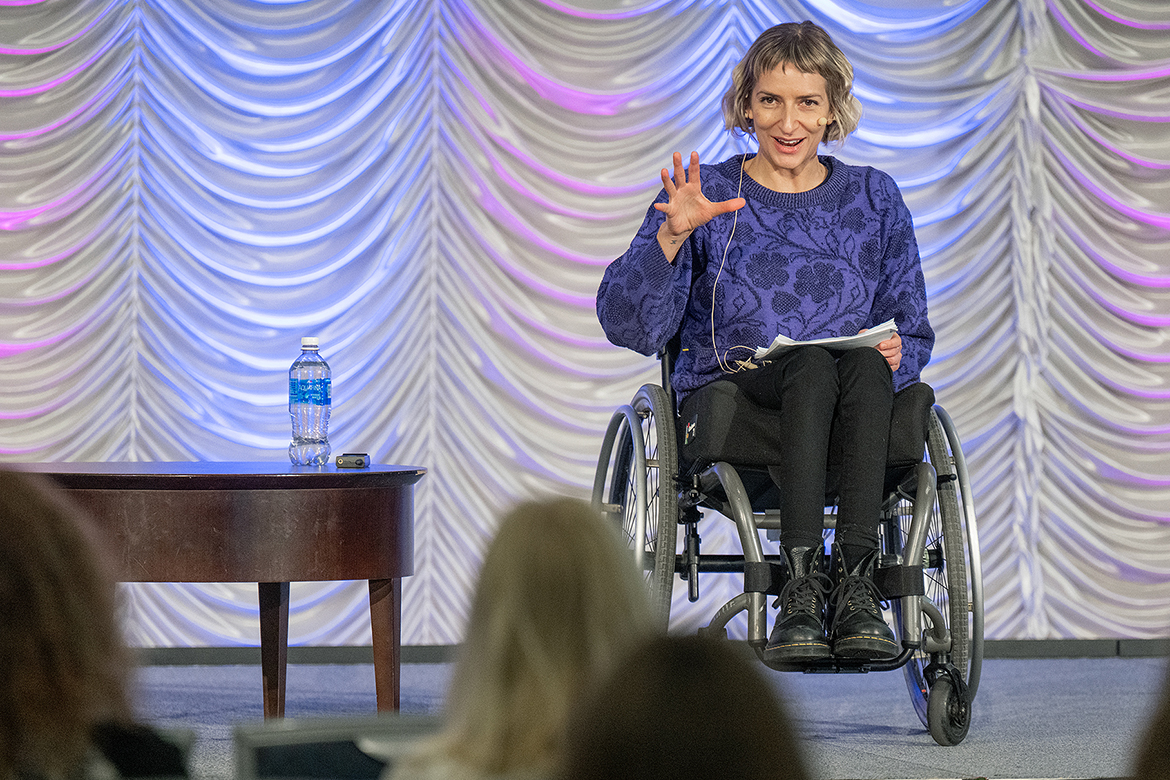
Wheelchair-bound since 3, this year’s Middle Tennessee State University National Women’s History Month keynote speaker held up her homemade sign from that cold day in January for attendees at her public talk recently inside the Student Union Building: “Women’s rights, disability rights, human rights.” In that moment, she felt disappointed there seemed to be no one else like her at such a momentous event.
But she was not alone. Through articles and internet searches, Taussig discovered hundreds of women were left out of marches due to accessibility — and often left out, period, in discussions of equality and inclusion.
“I started to realize how little attention had been given to disabled women in the process of planning these events,” said Taussig, whose visit was sponsored by the National Women’s History Month Committee at MTSU. “But, what if conversations about access were deeply embedded into a community?”
Taussig — Instagram personality and author of the bestselling memoir “Sitting Pretty: The View from My Ordinary, Resilient, Disabled Body” — isn’t quiet about access and inclusion advocacy for those who are disabled.
She doesn’t want those women who are disabled to be “confined or held back by narrow expectations or rigid storylines.” Disabled women already face enough hurdles, and employment and healthcare are top of the list.
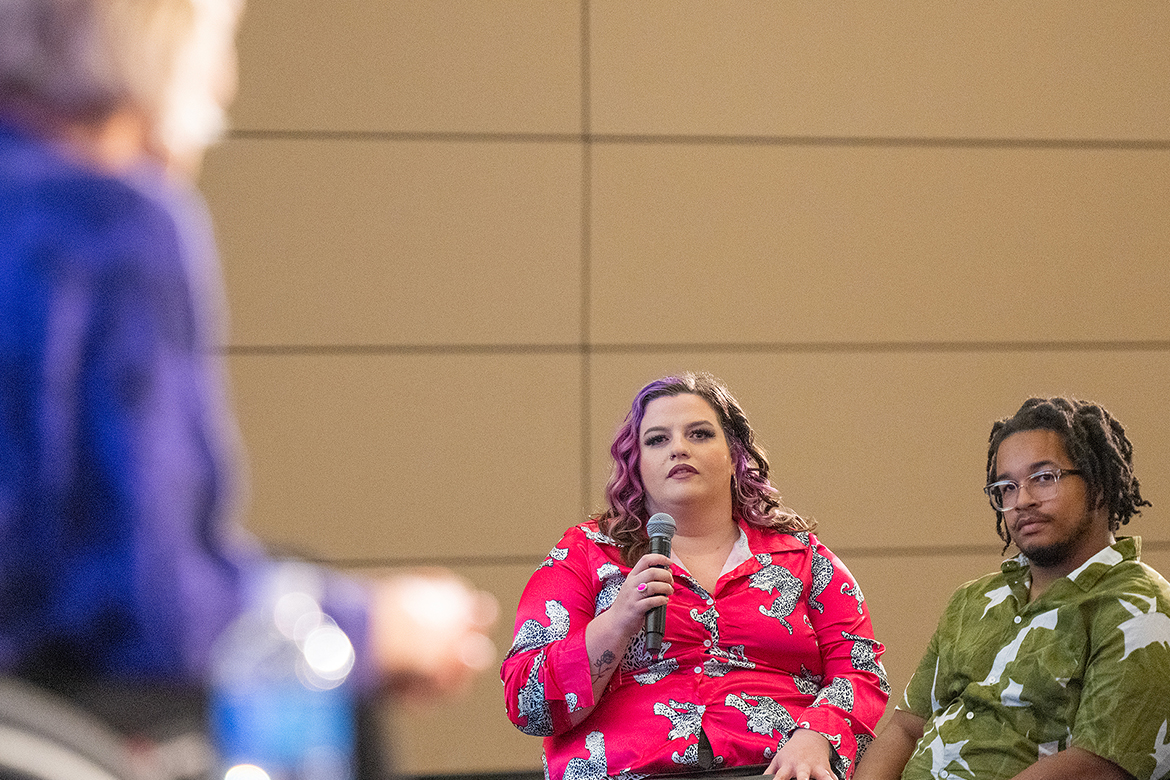
Taussig did research that showed the rate of unemployment is two times higher for disabled women than their abled counterparts. Disabled women are three times as likely to be sexually assaulted and 80% have survived sexual assault than nondisabled peers.
And when it comes to parenting, “Disabled women are not imagined to become mothers,” Taussig said. “Or worse, they are assumed to be unfit mothers. … Disabled women are often assumed to be the ones receiving care. It can be strange to sit here in this space.”
Accessibility has often been a challenge for freshman social work major Mae Ruehling of Grundy County, Tennessee, an attendee at Taussig’s March 28 appearance. Ruehling was paralyzed in 2017 when a drunk driver hit her head on as she drove to volunteer at a nursing home.
Ruehling, now 26, often faces accessibility challenges in many areas of life, such as narrow doorways, stairs with no elevator in sight, and events that are held in the grass — which is not wheelchair friendly.
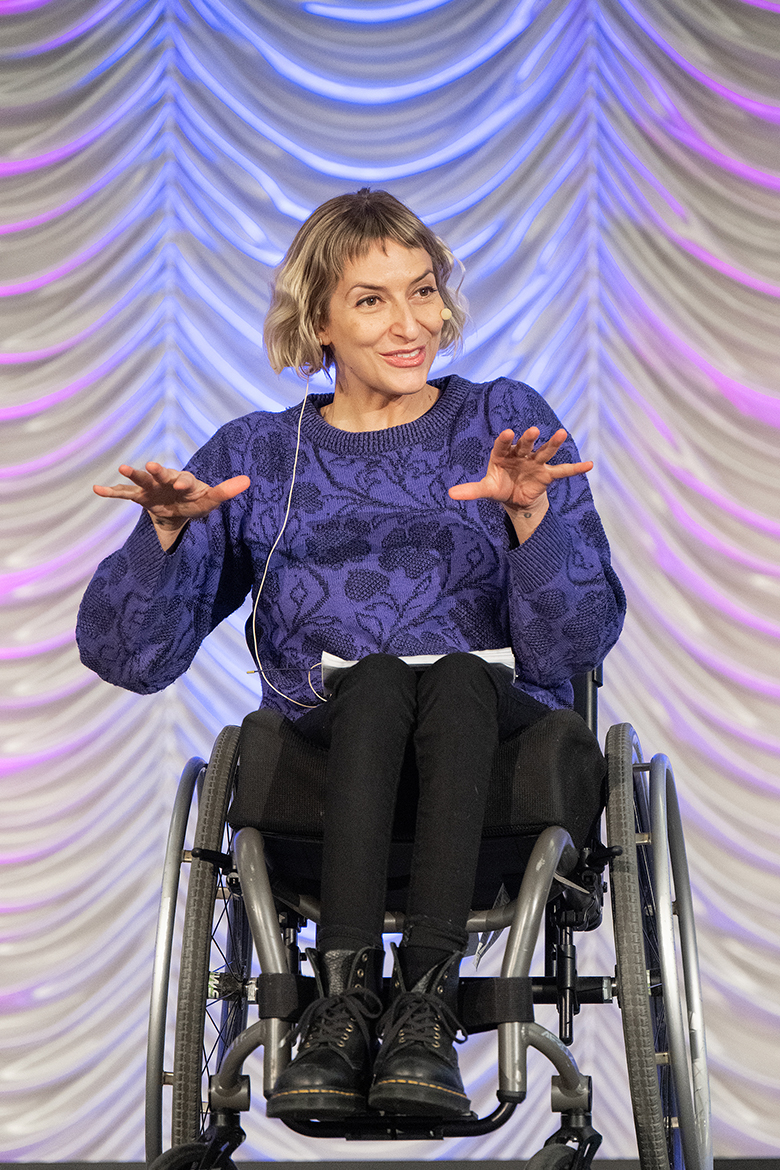
“I think it’s important, with Women’s History Month, to also include women with disabilities (in the conversation). I feel like Rebekah gave us that purpose and meaning,” said Ruehling, who doesn’t shy away from wearing fabulous footwear and talking about her disability challenges.
Like Taussig, Ruehling documents her recovery via Instagram and TikTok. She’s also working on starting a disabled student organization at MTSU. And she hopes others will start to take notice of those who are disabled.
“I think it’s important to have more people show up and understand what we disabled people go through. A lot of people just don’t know,” Reuhling said. “I feel like Rebekah gave people more of an understanding of what it’s like to be disabled.”
Ruehling’s experience recovering from the near-fatal crash prompted her career path in social work.
“I wanted someone to be there for me. I want to be there for someone to say, ‘This is what to expect,’” Ruehling said. “That’s why I chose social work.”
The final National Women’s History Month event, held in conjunction with the LGBT Plus College Conference, is set for 10:45 a.m. Saturday, April 6, in the Student Union Ballroom, 1768 MTSU Blvd.
Author, filmmaker and photographer St. Clair Detrick-Jules will offer the community keynote address, “My Beautiful Black Hair: 101 Natural Hair Stories from the Sisterhood,” a presentation that references her book of the same name. The event is also co-sponsored by Intercultural and Diversity Affairs. A searchable campus parking map is available at http://tinyurl.com/MTSUParkingMap.
Visit https://mtsu.edu/jac/ to learn more about the June Anderson Center, located in Room 330 in the Student Union Building, 1768 MTSU Blvd. You can also email maigan.wipfli@mtsu.edu or call 615-898-5812.
— Nancy DeGennaro (Nancy.DeGennaro@mtsu.edu)
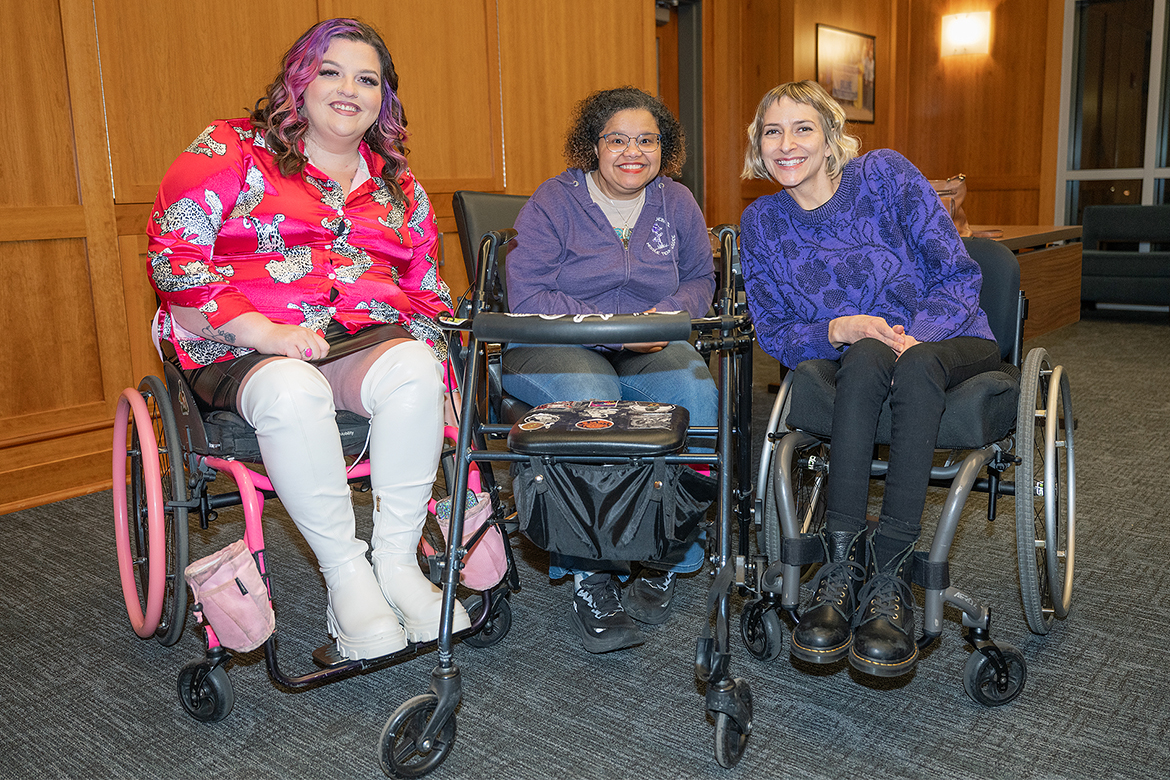

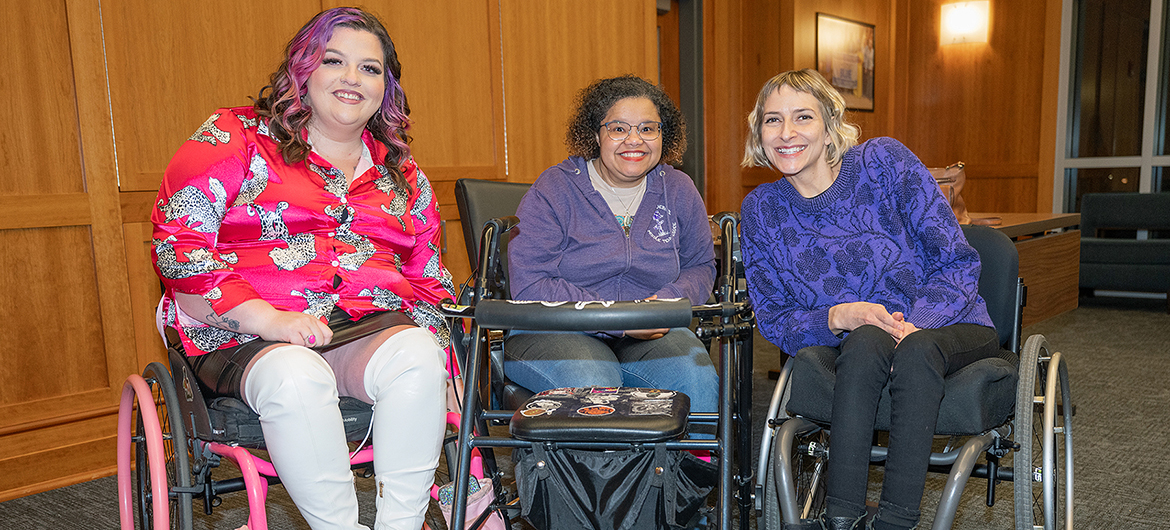
COMMENTS ARE OFF THIS POST